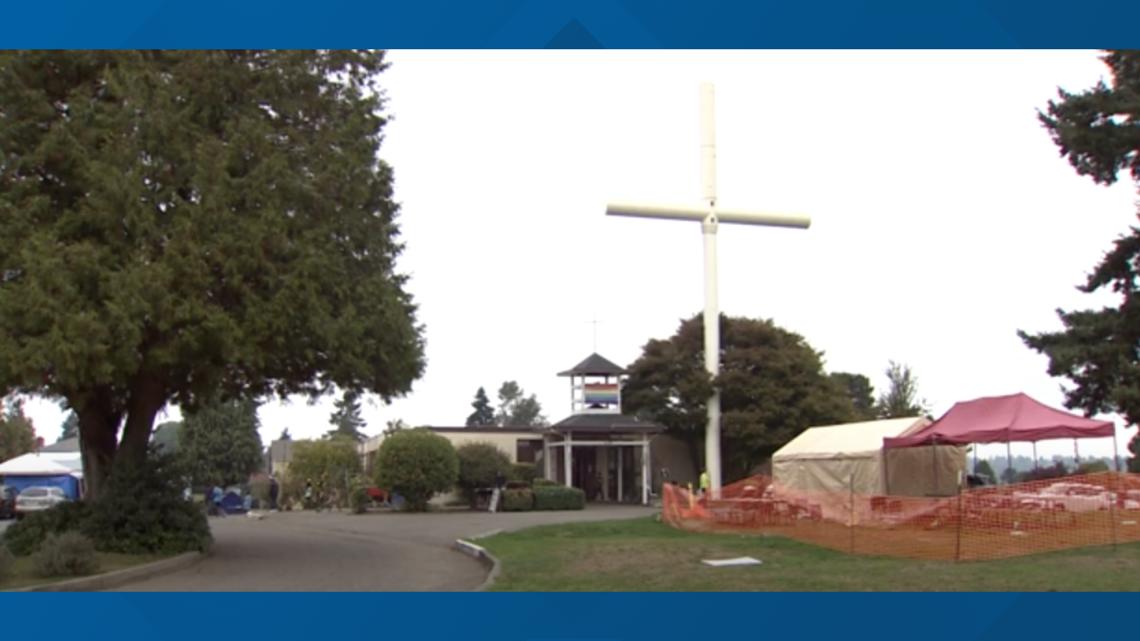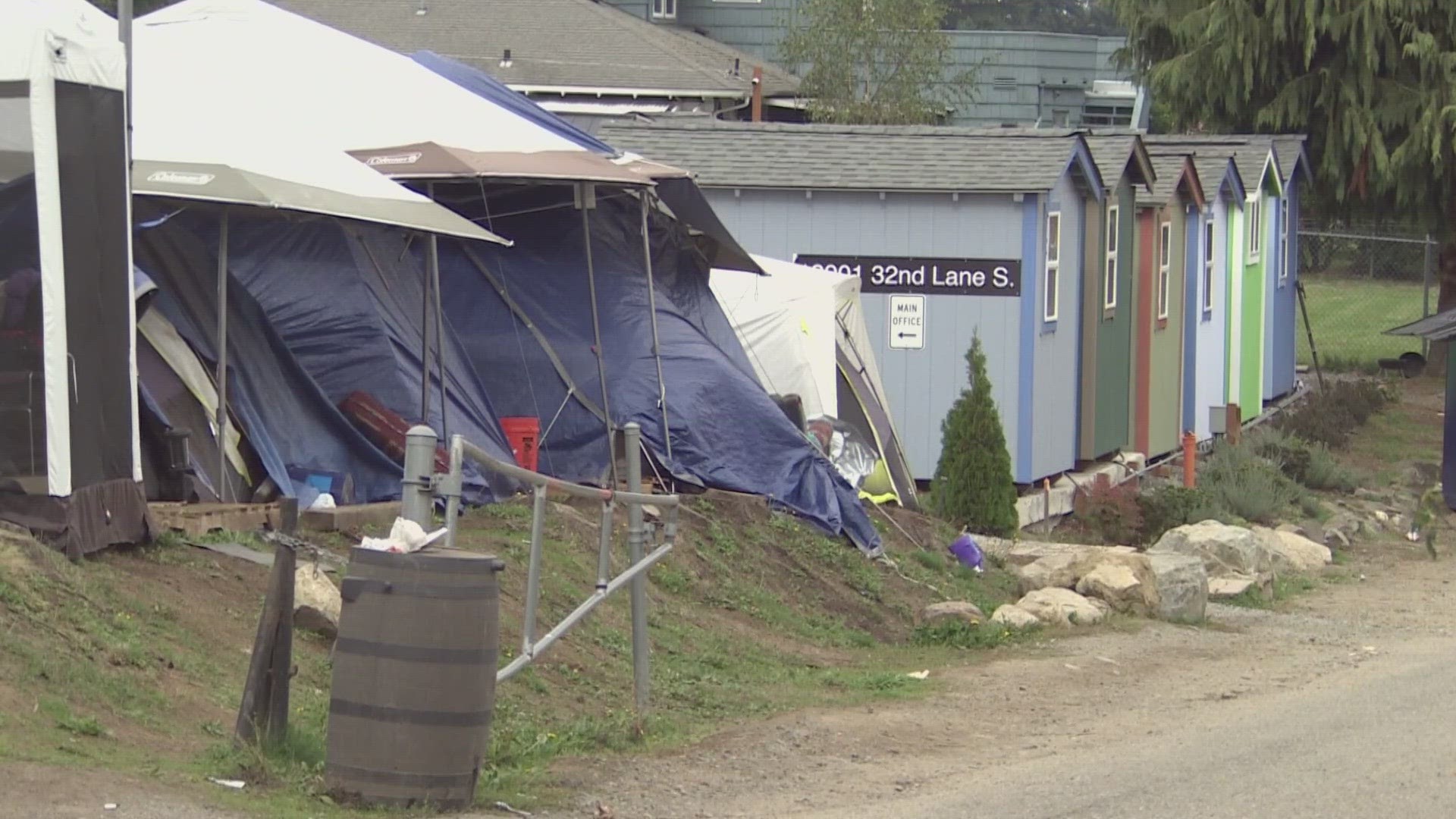TUKWILA, Wash. — Since December, Riverton Park United Methodist Church in Tukwila has taken care of migrants from the Southern Border.
Around 180 people are living inside and on the church’s property.
“We are a welcoming place for migrants who come into this community,” Pastor Jan Bolerjack said. “They’re mostly from Venezuela and Angola.”
Bolerjack said it was a months-long treacherous trek for the migrants to reach her church doors.
“A lot of trauma getting out of their countries. Many of them saw relatives die, houses burned, soldiers pushing them along,” Bolerjack said.
“We have been able to just do a few things out of the goodness of our hearts, out of random donations, but we’re at the end of that and we need support from other agencies,” Bolerjack said.
Tukwila Mayor Allan Ekberg declared a state of emergency on Friday to address the growing number of asylum seekers needing help in the city.
“We’ve been calling for assistance for quite a while," Bolerjack said. "The City of Tukwila wanted to wait ‘til there were resources that were going to come available. They didn’t want to declare a state of emergency without something that was going to move forward."


How the migrants will get help is still being figured out. A City of Tukwila spokesperson told KING 5 there have been “ongoing conversations between multiple levels of government and non-profit organizations to provide resources.”
As for help from the state, a spokesperson for Gov. Jay Inslee said “right now the task is finding what relevant resources the state is in a position to offer.”
As of this article being published, there’s not a firm timeline on when the migrants will receive help other than what’s coming from the church.
“My church is not out of resources because the community is very helpful," Bolerjack said. "Are we stretched to the edge? Yes. Our utilities have gone from $1,000 a month to $10,000 a month. They’ve also had to hire more staff to accommodate the growing migrants."
Bolerjack believes expediting work permits could help alleviate some of the strain they’re feeling. Currently, asylum seekers must wait at least 180 days after submitting their asylum application to receive a work permit.
“The biggest barrier these folks face is that they don’t have work permits," Bolerjack said. "They’re ready to go to work, but they don’t have work permits. As soon as they get that, they’re going to be able to rent their own places, do their own thing. It’s not going to be a burden to the state, but for now, it is a burden.”
Cities across the country have seen an influx of migrants seeking asylum since Title 42, a COVID-19 public health restriction affecting migrants at the U.S.-Mexico border expired on May 11.

